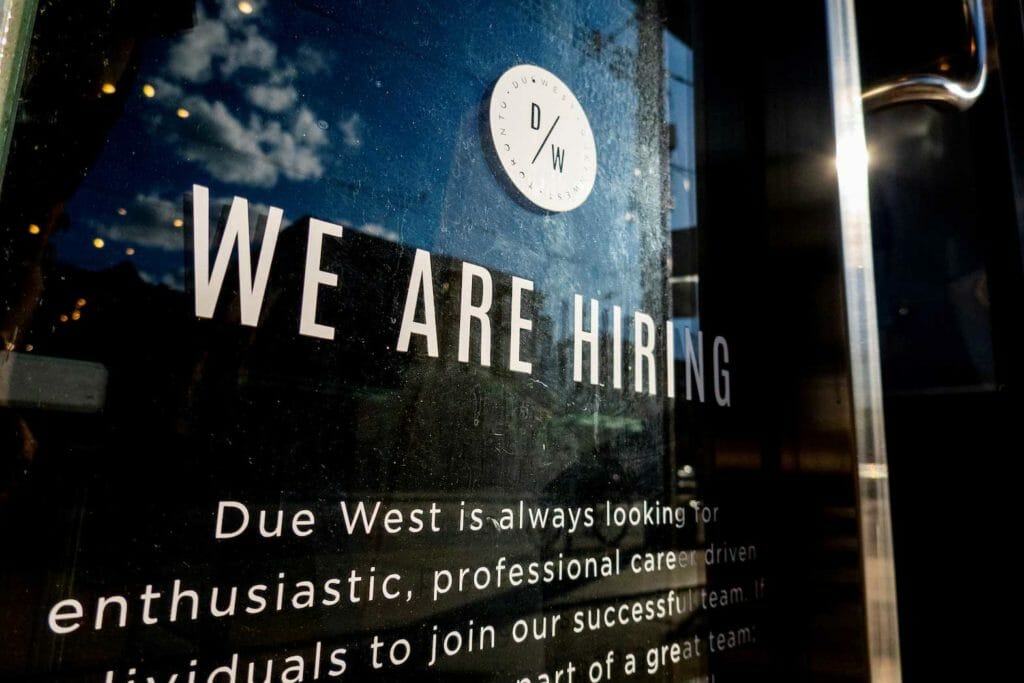Canada sheds jobs for second month in a row, central bank seen hiking rates

A help wanted sign at a store along Queen Street West in Toronto Ontario, Canada June 10, 2022. REUTERS/Carlos Osorio
OTTAWA – Canada’s economy unexpectedly lost jobs for the second month in a row in July after a year-long boom, but analysts predicted that this would not stop the Bank of Canada from hiking interest rates to fight inflation.
Statistics Canada on Friday reported 30,600 positions were shed while the unemployment rate stayed at a record low 4.9%.
The data marked the second consecutive month of relatively moderate losses. Between May 2021 and May 2022, the economy added 1.06 million jobs as the recovery from COVID-19 took hold.
Analysts polled by Reuters had expected an increase of 20,000 positions and for the jobless rate to edge up to 5.0%.
The central bank last month surprised markets by raising its main interest rate by 100 basis points in a bid to tackle inflation, and said more hikes would be needed.
Derek Holt, vice president of capital markets economics at Scotiabank, said the July figures were disappointing but predicted Canada’s central bank would keep raising rates.
“I think they know full well that fighting inflation is going to break a few things, and one of them will be slowing job market momentum,” he said.
The average hourly wages of permanent employees – a figure the Bank of Canada watches closely – rose by 5.4% from July 2021, down from June’s 5.6% year-on-year increase but sharply higher than the 2.4% registered at the start of the year.
“That’s going to concern the Bank of Canada much more than the job count as evidence of tight markets amid difficulty getting workers,” said Holt.
Statscan said there was no indication of increased job churn despite the tight labor market.
The United States, by far Canada’s largest trading partner, on Friday reported unexpectedly strong jobs numbers. This helped push the Canadian dollar 0.6% lower to 1.2945 to the greenback, or 77.25 U.S. cents.
The Canadian central bank’s next scheduled rate announcement is on Sept. 7, with the August jobs data due on Sept 9.
Money markets have fully priced in a 50 basis point hike and see about a two-thirds chance of a 75 basis point move.
“We’re still dealing with the lowest unemployment rate in at least 50 years, and wages that are running strong,” said Doug Porter, chief economist at BMO Capital Markets.
“I don’t believe things are nearly weak enough to call a halt to rate hikes. We had penciled in a 50 basis point rate hike in September and I would say we’re comfortable with that call,” he said by phone.

